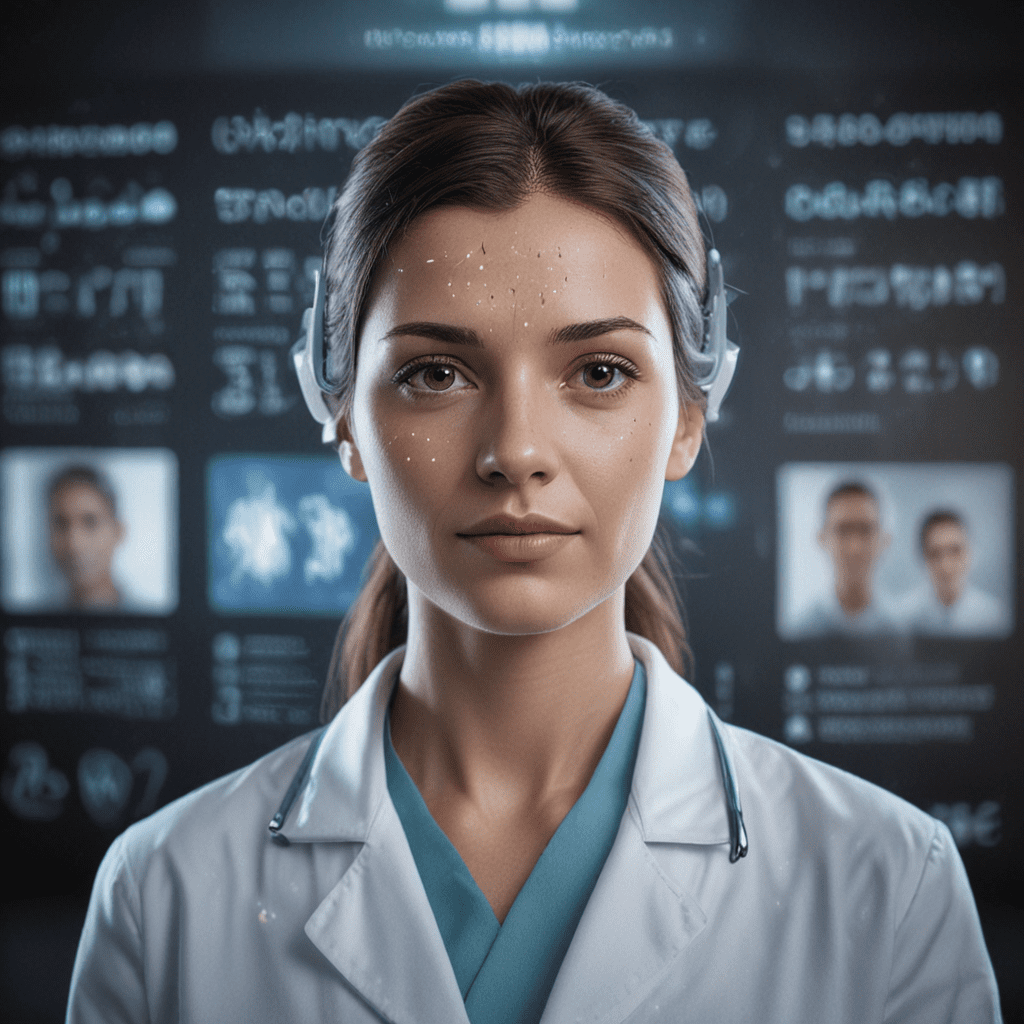
Facial Recognition: The Future of Personalized Healthcare
Introduction
Facial recognition technology is revolutionizing numerous industries, and healthcare is among those at the forefront of this transformation. With its ability to accurately identify and track individuals based on their unique facial features, facial recognition offers a wide range of benefits in the healthcare sector, paving the way for more personalized and effective patient care.
Biometric Identification and Facial Recognition
Biometric identification, which includes facial recognition, utilizes distinct physical or behavioral characteristics to recognize and verify an individual's identity. Facial recognition technology, in particular, employs advanced algorithms to map and analyze various facial features, such as the shape of the face, the distance between the eyes, and the curve of the lips. This unique pattern can serve as a highly accurate identifier, making it ideal for use in healthcare settings, especially for patient identification and tracking.
Applications in Healthcare: Patient Identification and Tracking
In healthcare, facial recognition technology is primarily used for patient identification and tracking. It offers a quick and reliable way to verify patient identities upon admission, during appointments, and throughout their treatment journey. This reduces the risk of errors and misidentification, improving overall patient safety. Additionally, facial recognition can help streamline the patient intake process, making it more efficient and convenient for both patients and healthcare providers.
Personalized Treatment Plans: Identifying Genetic Predispositions
Facial recognition technology can go beyond patient identification and tracking to play a crucial role in devising personalized treatment plans. By analyzing facial features, it can help identify genetic predispositions to certain diseases, enabling healthcare providers to tailor treatments to individual patient needs. This personalized approach can enhance treatment outcomes and improve overall patient care.
Disease Diagnosis and Monitoring: Early Detection and Intervention
Facial recognition also holds great potential in disease diagnosis and monitoring. By comparing facial images over time, healthcare professionals can detect subtle changes that may indicate the onset or progression of diseases such as Parkinson's or Alzheimer's. Early detection and intervention can significantly improve patient outcomes and quality of life.
Remote Care and Telemedicine: Improved Accessibility and Convenience
The integration of facial recognition technology into remote care and telemedicine platforms can greatly improve accessibility and convenience for patients. By leveraging facial recognition for patient identification and verification, healthcare providers can offer remote consultations, monitor patients' health remotely, and provide personalized care from a distance. This can be particularly beneficial for patients in rural or underserved areas or those with limited mobility.
Ethical Considerations: Privacy, Discrimination, and Data Security
While facial recognition technology offers numerous benefits, it also raises ethical concerns regarding privacy, discrimination, and data security. It is crucial to implement robust safeguards to protect patient data and prevent misuse. Additionally, addressing potential biases in facial recognition algorithms is essential to ensure fairness and equity in healthcare delivery.
Advancements and Innovations: Artificial Intelligence and Deep Learning
Advancements in artificial intelligence (AI) and deep learning are driving the continuous evolution of facial recognition technology. These technologies are enabling more accurate and efficient facial recognition, paving the way for even more personalized and effective healthcare solutions.
Challenges and Implementation Barriers
Despite its potential, facial recognition implementation in healthcare faces challenges. These include the need for robust data privacy and security measures, addressing potential biases, and ensuring equitable access to technology. Overcoming these barriers is essential for the successful adoption and widespread use of facial recognition in healthcare.
Future Potential and Conclusion
As facial recognition technology continues to advance and ethical concerns are addressed, its potential in healthcare is vast. It holds the promise of revolutionizing patient care by enabling personalized treatment plans, early disease detection, remote healthcare delivery, and improved patient safety. By embracing the opportunities and mitigating the risks, healthcare can harness the power of facial recognition to improve patient outcomes and enhance the overall healthcare experience.
FAQ
Q: Is facial recognition technology accurate?
A: Facial recognition algorithms have become highly accurate, with the ability to identify individuals with a high degree of certainty.
Q: How does facial recognition protect patient privacy?
A: Robust data privacy measures, such as encryption and anonymization, are implemented to protect patient data and prevent misuse.
Q: How can facial recognition reduce healthcare costs?
A: By enabling personalized treatment plans, early disease detection, and remote care, facial recognition can lead to more efficient and cost-effective healthcare delivery.
Q: What are the limitations of facial recognition in healthcare?
A: Potential biases in facial recognition algorithms and the need for robust data privacy and security measures are among the challenges that need to be addressed.
Q: How will facial recognition impact the future of healthcare?
A: Facial recognition holds the potential to revolutionize patient care by providing personalized treatment plans, enabling early disease detection, enhancing remote healthcare delivery, and improving patient safety.


